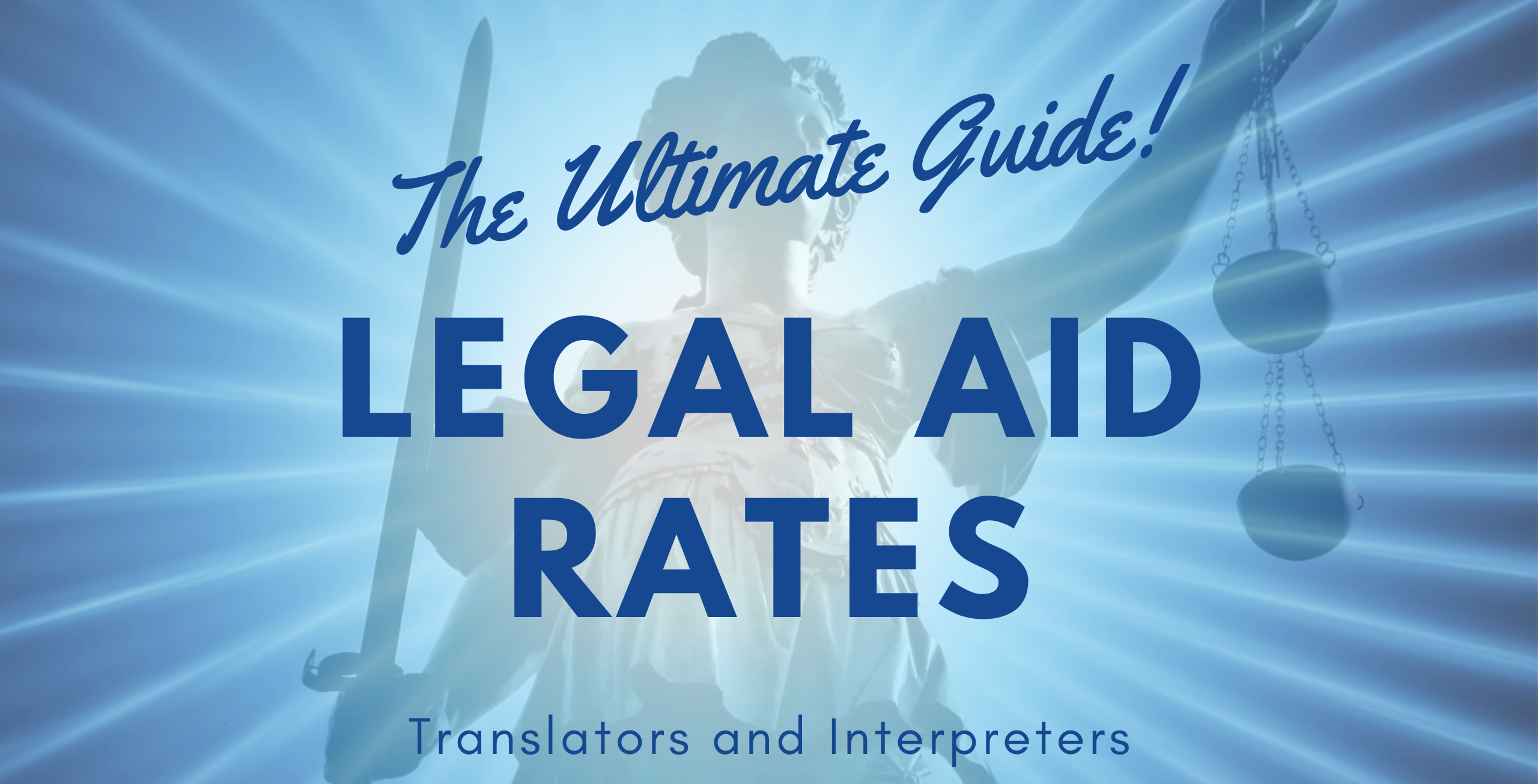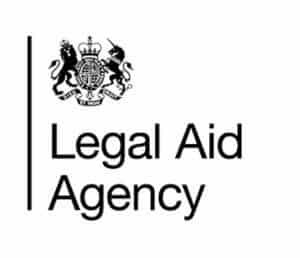
Legal Aid rates for translation
The Guidance on Remuneration of Expert Witnesses (6.20 -6.22) confirms that a rate of £100 per 1,000 words is considered reasonable for translation as this is the rate that prior authority would not be required in a certificated matter.
For translation, we will require either the rate per word and number of words translated or the hourly rate and time taken. We will generally consider the hourly rate for interpretation to be a comparable rate to that used for translation.
(Civil Finance Electronic Handbook, Legal Aid Agency)
Legal Aid rates for interpreters
- Interpreting, telephone interpreting – Criminal: £32 per hour for interpreters based out of London, interpreters based within a London borough – £29 per hour (the rates were increased in 2022), Civil: £28 per hour for interpreters based out of London, interpreters based within a London borough – £25 per hour (the rates were changed in December 2013).
- Travel time – Civil: 2/3 of the hourly rate for interpreting, Criminal: 1/2 of the hourly rate for interpreting.
- Mileage – 45 pence per mile.
Legal aid rates for interpreters explained
Civil law
Interpreting: – Annex 1 (Expert rates on Civil cases started on/after 2nd December 2013) of The Civil Legal Aid (Remuneration) (Amendment) Regulations 2013 sets out the hourly rate at £25 for interpreters based in London and £28 per hour for interpreters based outside London. This is further confirmed in Version 7 of the Guidance on the Remuneration of Expert Witnesses in Family Cases (September 2022).
Travel time – According to Guidance on the Remuneration of Expert Witnesses in Family Cases the remuneration rates for travel time for experts are capped at £40 per hour and the travel rate cannot be more than 2/3 of the hourly rate of the expert.
Mileage – According to Civil Finance Electronic Handbook Version 3.3, the rate of 45p is the maximum rate for mileage.
Criminal law
Interpreting – According to Schedule 5, Regulation 16 Criminal Legal Aid (Remuneration) Regulations (amended 2022) the hourly rate for interpreters is £29 (for interpreters based in London) and £32 (for interpreters based outside London).
Travel time – Schedule 5, Regulation 16 Criminal Legal Aid (Remuneration) Regulations (amended 2022) confirms that the maximum amount that may be paid as a disbursement in respect of an expert’s travel time is £40 per hour. The Guidance on the Remuneration of Expert Witnesses in Family Cases further clarifies that the travel rate cannot be more than 2/3 of the hourly rate of the expert. However, according to our experience, the travel time rate the criminal legal aid usually accepts is ½ of the rate for interpreting.
Mileage – According to the Guidance on the Remuneration of Expert Witnesses (Version 3, September 2014) the mileage rates for experts are capped in line with the guidance for solicitor travel, currently 45p per mile.
Legal Aid rates for experts
Legal Aid rates for experts were first introduced by the Legal Aid Agency (LAA) in the Civil Legal Aid (Remuneration) Regulations 2013 and the Criminal Legal Aid (Remuneration) Regulations 2013. Since then, the Guidance on the Remuneration of Expert Witnesses has been updated a few more times and the latest version, Version 7, was published in September 2022.

The Legal Aid Agency is an executive body of the Ministry of Justice in the United Kingdom which provides both civil and criminal legal aid and advice in England and Wales.
Legal Aid rates apply in a case where a provision of assistance called Legal Aid, has been granted by the Legal Aid Agency to a person who would otherwise not be able to afford legal representation and access to justice.
In such cases, the Legal Aid Agency will not pay fees or rates in excess of those listed in the Remuneration Regulations unless, in exceptional circumstances, they had granted prior authorisation to exceed those fees or rates.
“Where a client is eligible for legal aid and requires an interpreter then their solicitor will secure an interpreter on their behalf. The interpreter will be available at the court to translate what the solicitor and client say to each other. This will usually involve discussions outside of the courtroom. It may be appropriate for the legally aided interpreter to be in court during the hearing, e.g. a solicitor wants to give instructions to their client in court or to discuss issues that have been raised in court at any point during the hearing.“
(Guidance on the Remuneration of Expert Witnesses – 4.1)
Because most experts prefer to agree their fees in advance, without prior authority there is a risk that less than the agreed fee will be allowed by the LAA on assessment. The solicitor can eliminate this risk by applying in advance for prior authority to instruct the expert.
However, it may be in their interest to request prior authorisation whenever costs are either unusual in nature or unusually large.
Exceptional circumstances are defined in the Remuneration Regulations and are where the expert’s evidence is key to the client’s case and either the complexity of the material is such that an expert with a high level of seniority is required, or the material is of such a specialised and unusual nature that only very few experts are available to provide the necessary evidence.
“The Legal Aid Agency (LAA) cannot pay fees or rates in excess of those listed in the Remuneration Regulations unless we have granted prior authority to exceed the fees or rates. This will be in exceptional circumstances.“
“Where an interpreter is claiming a minimum charge we would expect these to be justified on submission of either the claim or the prior authority/CW3 application. In order for us to make an assessment as to whether these costs were reasonable, the provider would need to demonstrate that there was a scarcity of resource and therefore it was necessary to instruct an interpreter who claimed for that minimum charge.
This can be done by providing written evidence from at least three local service providers that they charge a 1hr minimum fee. Any justification or evidence provided must be dated within 12 months of the instruction of the interpreter. It is not sufficient for the provider to state that this is a standard charge that is claimed on all cases. Where no justification has been provided we will assess to the actual time taken.“
(Civil Finance Electronic Handbook – Page 66)
Cancellation fee – Legal Aid cases
According to the Civil Finance Electronic Handbook, no cancellation fee will be payable if the expert is cancelled more than 72 hours before a hearing. For a case where a hearing scheduled for a number of days might be cancelled, the 72 hours’ notice would extend into the number of days of that cancelled hearing. It might be right to reimburse for the first or second day but the notice would allow the expert rescheduling subsequent days and further cancellation fees would not be appropriate.
London / Non-London experts
The Remuneration Regulations set out that there are different rates for certain types of experts working inside and outside of London. The location of the expert is the determining factor as to whether London or non-London rates or fees apply.
London rates will apply where the expert is based within a London Borough and where applicable the location of the expert’s registered office will be used to determine which rate will apply. Where an expert works from or has a number of different office locations, the office closest to the provider will determine which rates apply.
More information:


Leave a Comment